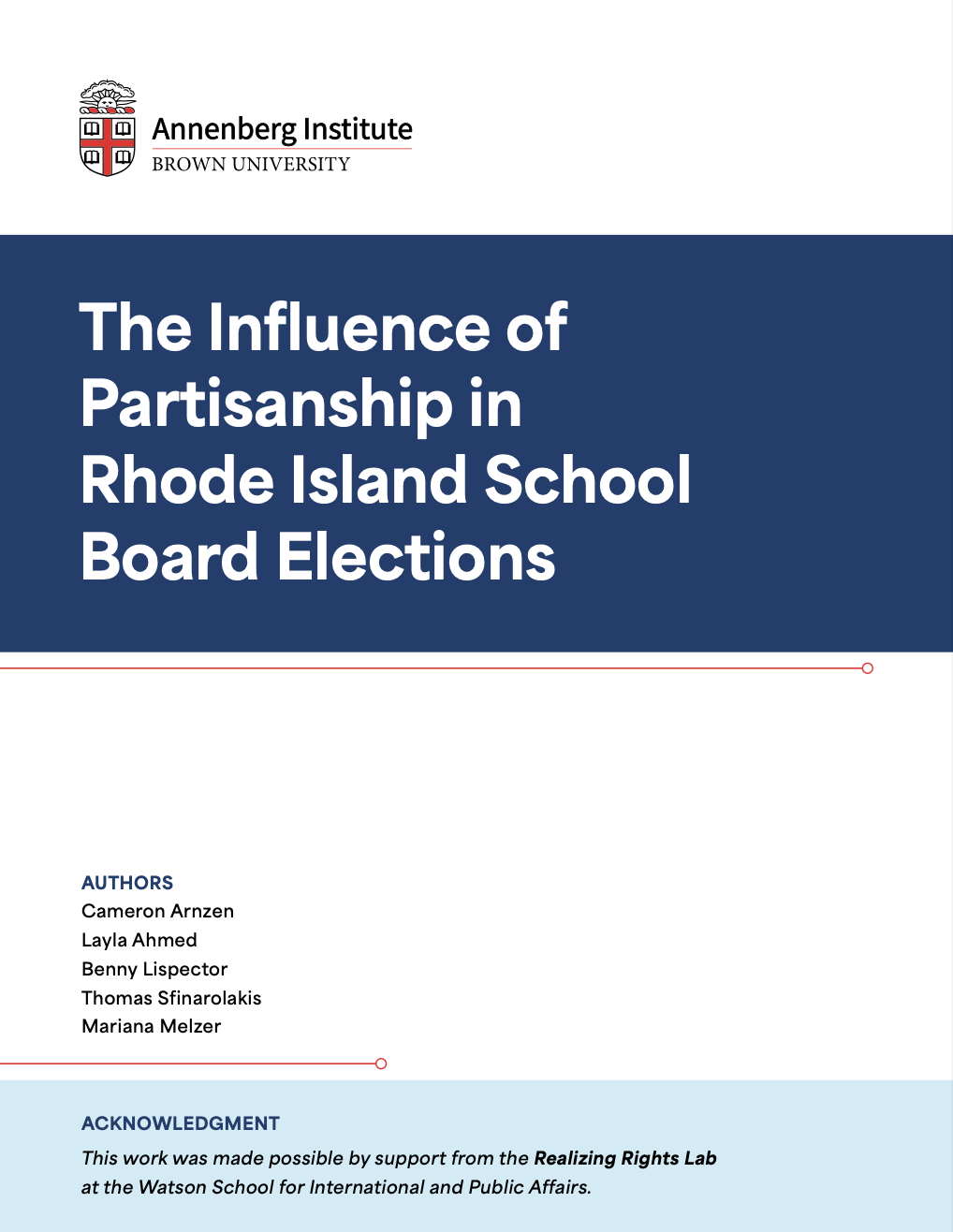Across the U.S., more than 90,000 locally elected school board members serve in 13,000 districts—most chosen through nonpartisan, off-cycle elections, a legacy of Progressive Era reforms meant to keep education governance above politics. Yet, these elections often draw turnout as low as 5–10%, raising questions about representation and influence. In response, several states are exploring reforms such as aligning school board elections with federal cycles or making them explicitly partisan.
This report examines how Rhode Island stands out in this national landscape. Unlike most states, Rhode Island holds its school committee elections on-cycle with state and federal races, and each locality decides whether contests are partisan. As of 2024, 17 of 38 districts hold partisan school board elections, which are more likely in more affluent and civically active communities. Exit polling from two contested partisan elections shows that voters across party lines care most about student safety, mental health, and academics, while views diverge on issues like DEI and sex and gender education. Despite the presence of partisan elections, most Rhode Island voters—across political affiliations— prefer nonpartisan school board elections.
